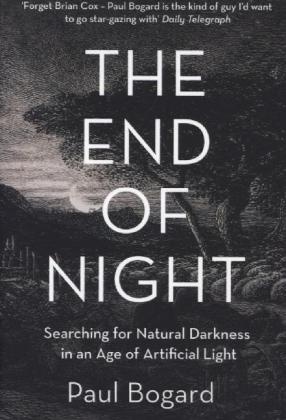Read more
We live awash in artificial light. Since the 1930s its increase has been gradual enough that it would be easy to imagine our nights are as dark, or nearly so, as they ever were. But today some three-quarters of Europeans and Americans no longer experience real night and can''t imagine real darkness-and nearly all of us live in areas considered polluted by light. In ways we''ve long understood, in others we''re just beginning understand, night''s natural darkness has always been invaluable for our spiritual health and the health of the natural world, and every living creature suffers from its loss. In Geography of Night, Paul Bogart investigates what we mean when we talk about the different shades of darkness, about what we''ve lost, what we still have, what we might regain. He travels from our brightest nights to our darkest, from the intensely-lit cities where public lighting as we know it began, to the sites where real darkness might still remain. Encountering scientists, physicians, activists and writers, Bogart discusses how our use of light at night is negatively affecting the natural world in ways we''re barely beginning to study; how human physical, psychological, and spiritual health are significantly influenced by darkness or a lack thereof; and how it''s not a matter of using light at night or not, but rather when and where, how and how much. A beautiful invocation of our constant companion, the night, which returns every day of our lives, this book reminds us of the power and mystery of the dark.
Report
'Forget Brian Cox - Paul Bogard is the kind of guy I'd want to go star-gazing with ... Bogard's delight in the night is infectious ... The appeal of Bogard's book derives not just from his often wide-eyed enthusiasm for his subject, but also from the constellation of characters he encounters on his journeys into the night' Stephanie Cross, Sunday Telegraph.
'Bogard sets about his investigations with an energetic purposiveness and enterprise ... To seek to let back in a little of the lost starlight and allow more of nature's shadow to reassert its balm seem to me both modest and wholesome aims, and Bogard's book does much to make a case for them' Salley Vickers, Observer
'Bogard takes us light years through history, science, psychology, art, folklore and his own travels, looking for an unpolluted dark and starry, starry night' Iain Finlayson, The Times
'Thought provoking ... convincing that artificial light has blinded us to the beauties of the night. Perhaps it's time to follow him over to the dark side' Mail on Sunday
'Bogard's book is a literary journey - in the space of a few pages, we walk with Virginia Woolf, Charles Dickens and Rétif de la Bretonne. It is also a pilgrimage to our capitals of light. This is a rich book with a rewarding appendix of notes. The big thing is that, as you read it, you too will want to reclaim the night and perhaps rediscover the heavens of the Enlightenment' Nature Magazine
'Does [the end of night] matter? It's impossible to read this thorough and engaging survey of the subject (how much more professionally American writers approach non-fiction) and not be convinced that it does' David Sexton, Evening Standard
'It should be read, and its ardour is impressive' The Scotsman
'Super little book ... This is a hunt for a proper night sky ... and it's proper fascinating' Sunday Sport

